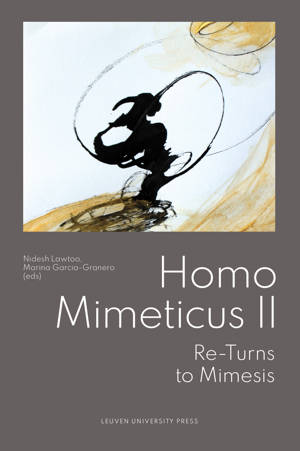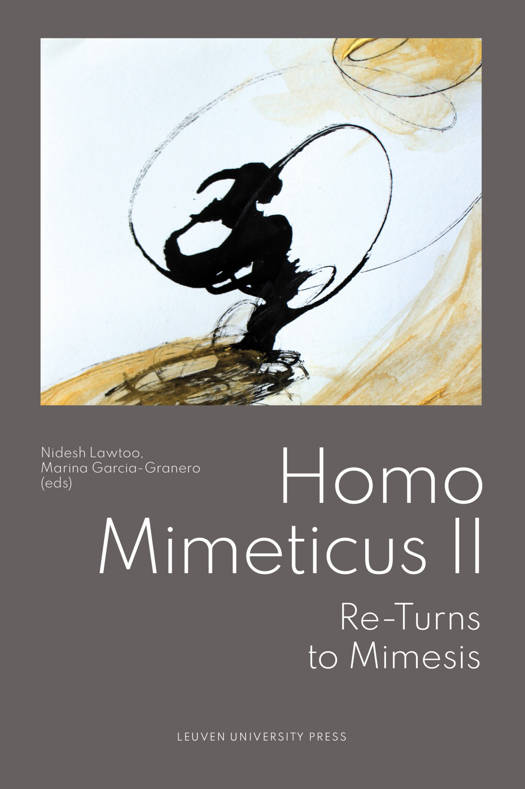
- Retrait gratuit dans votre magasin Club
- 7.000.000 titres dans notre catalogue
- Payer en toute sécurité
- Toujours un magasin près de chez vous
- Retrait gratuit dans votre magasin Club
- 7.000.0000 titres dans notre catalogue
- Payer en toute sécurité
- Toujours un magasin près de chez vous
Homo Mimeticus II
Re-Turns to Mimesis
Mikkel Borch-Jacobsen, Henry Staten, Carlos Carvalhar, Teresa Casas Hernández, Mark Pizzato, Kieran Keohane, Carmen Kuhling, William Johnsen, Niki Hadikoesoemo, María del Carmen Molina Barea, Carmen Bonasera, Evelyne Ender, Henry Dicks, William E. Connolly, Vittorio GalleseDescription
After the linguistic and the affective turns, the new materialist and the performative turns, the cognitive and the posthuman turns, it is now time to re-turn to the ancient, yet also modern and still contemporary realization that humans are mimetic creatures. In this second installment of the Homo Mimeticus series, international scholars working in philosophy, literary theory, classics, cultural studies, sociology, political theory, and the neurosciences engage creatively with the theory developed by Nidesh Lawtoo in Homo Mimeticus: A New Theory of Imitation to further the transdisciplinary field of mimetic studies.
Agonistic critical engagements with precursors like Plato, Aristotle, Nietzsche, Bataille, Irigaray and Girard, involving contributions by leading experts of imitation such as Mikkel Borch-Jacobsen, William E. Connolly, Henry Staten and Vittorio Gallese among many others, reveal the urgency to rethink mimesis beyond realism. From imitation to identification, mimicry to affective contagion, techne to simulation, mirror neurons to biomimicry, Homo Mimeticus casts a shadow--but also a light--on the present and future, from social media to the Anthropocene.
Contributing authors: Nidesh Lawtoo (Leiden University), Marina García-Granero (University of Valencia), Mikkel Borch-Jacobsen (University of Washington), Henry Staten (University of Washington), Carlos Carvalhar (Universidade Federal da Bahia), Teresa Casas Hernández (Universidad Carlos III de Madrid), Mark Pizzato (University of North Carolina at Charlotte), Kieran Keohane (University College Cork), Carmen Kuhling (University of Limerick), William Johnsen (Michigan State University), Niki Hadikoesoemo (University of Amsterdam), María del Carmen Molina Barea (University of Córdoba), Carmen Bonasera (University of Turin), Evelyne Ender (Johns Hopkins University), Henry Dicks (University Jean Moulin Lyon 3), William E. Connolly (Johns Hopkins University), Vittorio Gallese (University of Parma)
Spécifications
Parties prenantes
- Auteur(s) :
- Editeur:
Contenu
- Nombre de pages :
- 370
- Langue:
- Anglais
Caractéristiques
- EAN:
- 9789462704411
- Date de parution :
- 15-11-24
- Format:
- Livre broché
- Format numérique:
- Trade paperback (VS)
- Dimensions :
- 156 mm x 234 mm
- Poids :
- 535 g

Les avis
Nous publions uniquement les avis qui respectent les conditions requises. Consultez nos conditions pour les avis.






